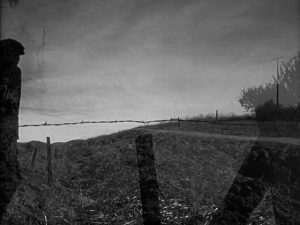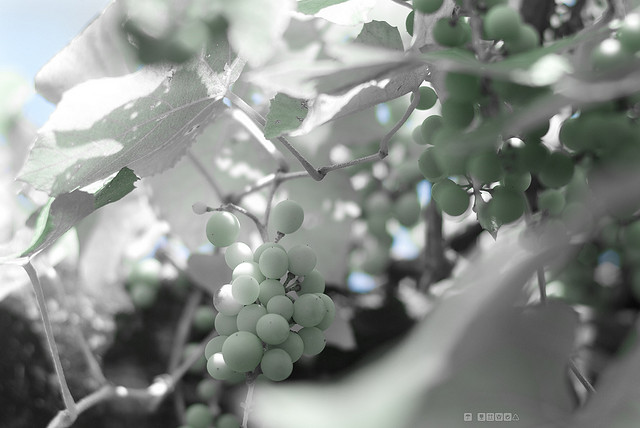Lectionary Reflection for the 17th Sunday after Pentecost Year A
October 5, 2014
Therefore I tell you, the kingdom of God will be taken away from you and given to a people that produces the fruits of the kingdom. Matthew 21:43
Most students have at one point or another in their academic career encountered John Steinbeck’s Pulitzer Prize-winning novel The Grapes of Wrath. The Joad family, having lost virtually everything of value to the bank and natural disaster, is forced to migrate from their home in Oklahoma to California in search of a better life. Throughout the course of the  novel, one is exposed through this fictional family to the very real realities of economic injustice and the ravages of poverty.
novel, one is exposed through this fictional family to the very real realities of economic injustice and the ravages of poverty.
In this week’s gospel lesson we have a story of a landowner, a vineyard, some tenant workers, and the various representatives who come to collect the grapes. It is a difficult story to hear and to understand; a lot of how one experiences Jesus’ words depends on how one perceives the characters and to whom one relates.
Are we the rightful collectors of holy benefits? Are we greedy and selfish tenants who refuse to pay their due to the vineyard owner? Or, do we see ourselves as overworked and underpaid workers who rightfully revolt against an unjust system of oppression? Are we righteous or rotten–or a little of both? Who are we?
Jesus is making a point with the Pharisees, good religious folk of his day, who are trying to entrap him and put a stop to his radically different message and ministry. Be careful where you’re pointing your finger, he seems to be saying, because there are a few more fingers pointing right back at you. Oh how frustrated they seem to be, afraid to press the point because of the throngs of followers who are hanging on Jesus’ words.
In exploring possible ways to approach this gospel lesson, what might it look like to contrast the worldy view of “grapes of wrath” (yes, a biblical reference to Revelation 14:19-20) with a new vision of grapes of grace? With Jesus everything is turned upside down and inside out, so it isn’t really that much of a stretch when you think about it. That which God produces is always life-giving, grace-filled, and hopeful. It is fallen humankind that takes the fruit of God’s good creation and extracts a wrathful harvest of injustice and oppression.
What at first glance seems so straightforward and righteous about this parable turns quickly on the words of verse 43 (above). The kingdom of God will be taken away from the obvious beneficiaries and given to those who produce the fruits of the kingdom. It’s easy to gloss over this verse by thinking these people are those who do good, who follow the rules, play the game right, and keep up proper appearances. But what if those who produce the fruits are indeed just that–those on the margins, those who bear the brunt of heavy labor,  those who strain at the yoke of injustice, and those who suffer for our choices? What happens, as Langston Hughes writes in his poem “Harlem,” to a dream deferred? Does it indeed explode?
those who strain at the yoke of injustice, and those who suffer for our choices? What happens, as Langston Hughes writes in his poem “Harlem,” to a dream deferred? Does it indeed explode?
A stewardship question worth asking is just how are we tending the fruits of God’s garden? Are we working together–tenant/grower and representative of the landowner–to produce the best possible yield? Are we cultivating sweet grapes of grace or extracting all that we can without thought for others in a harvest of wrathful choices and selfish gain?
As with most of Jesus’ teachings there are clear answers, but rarely ones that go down easily and without some effort. The parable of the vineyard is no exception, challenging us to think outside of the boxes of comfortable assumptions and cultural norms. Yes, we are asked to see this story through cross shaped lenses, framed against the cornerstone of grace, and we are challenged to do something in response. What will that be?
In Worship
We are fed by Christ; this is true. In body and blood, bread and wine, we receive the living Lord. Consider singing “By Your Hand You Feed Your People” (Evangelical Lutheran Worship #469). You can find Marty Haugen’s hymn here (GIA) on MySpace.
With Youth
As long as we’re talking grapes and poetry, why not explore the Old Testament lesson (Isaiah 5:1-7). Bring in some grapes for snack to reinforce the imagery (frozen grapes make an especially good treat). You might even want to include an excerpt from Robert Frost’s poem “Wild Grapes,” especially the lines “Now you know how it feels,” my brother said,/“To be a bunch of fox-grapes, as they call them,/That when it thinks it has escaped the fox/By growing where it shouldn’t–on a birch,/Where a fox wouldn’t think to look for it–/And if he looked and found it, couldn’t reach it–/Just then come you and I to gather it.”
And the conclusion: I had not taken the first step in knowledge;/I had not learned to let go with the hands,/As still I have not learned to with the heart,/And have no wish to with the heart–nor need,/That I can see. The mind–is not the heart./I may yet live, as I know others live,/To wish in vain to let go with the mind–/Of cares, at night, to sleep; but nothing tells me/That I need learn to let go with the heart.
Invite consideration of the question what has God planted in the vineyards of our lives and in the vineyard of our worshiping community? What is cultivated and growing well? What is wild and untamed? What gives God glory? What are we growing that is not of God or that does not point to Jesus?
Look for guidance in the last verse of the passage: “For in the vineyard of the Lord of hosts is the house of Israel, and the people of Judah are his pleasant planing; he expected justice, but saw bloodshed; righteousness, but heard a cry!”
This exercise will probably work only with older youth and young adults, but you might be able to scale it back for younger youth. Click here for information on Fox grapes (Vitis labrusca).
With Children
How to Grow Good Grapes (and disciples!)
Bring some grapes to share with the children as a snack. Ask them if they know much about how grapes are grown. If you have someone in your congregation who grows grapes, invite that person to talk about how to tend a grape vine so that it will produce. If grape vines are not properly tended, they will fail to produce well. Just so, disciples who do not tend to the development of their faith may dry up and fail to produce good fruit. There are several good YouTube videos about tending grapes. Here’s one about “leaf pulling.” Growing good grapes requires effort and careful management. Invite the children to think of ways we cultivate disciples (prayer, studying scripture, worship, involvement in the faith community, cultivating generosity and the desire to serve). Give each child a coloring sheet with grape vines on it and add the final two verses of this week’s psalm (80:7-15): “Turn again, O God of hosts, look down from heaven, and see; have regard for this vine, the stock that your right hand planted.
(Photos: DeusXFlorida, How Matters, and Andrew Baldwin, Creative Commons. Thanks!




Leave a Reply